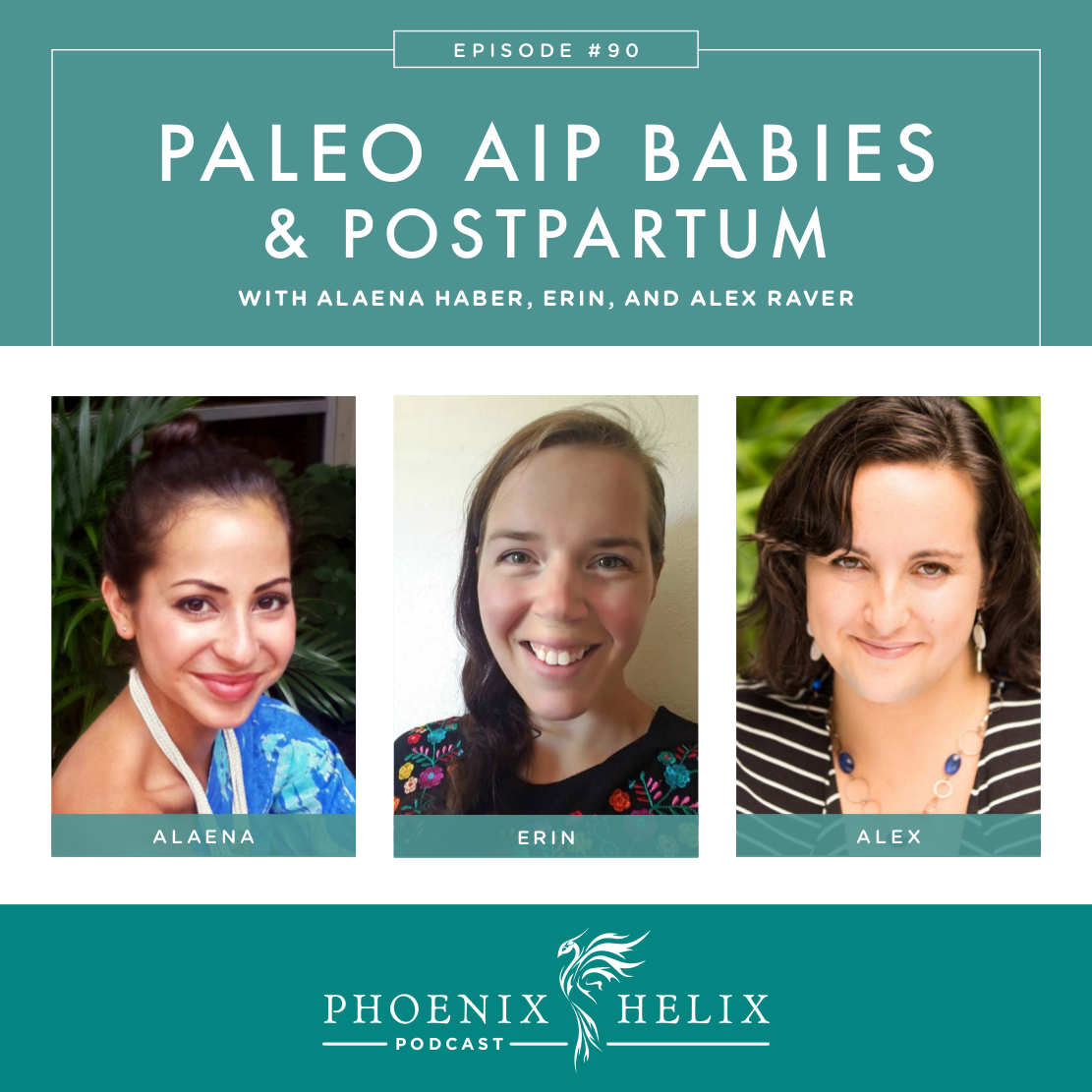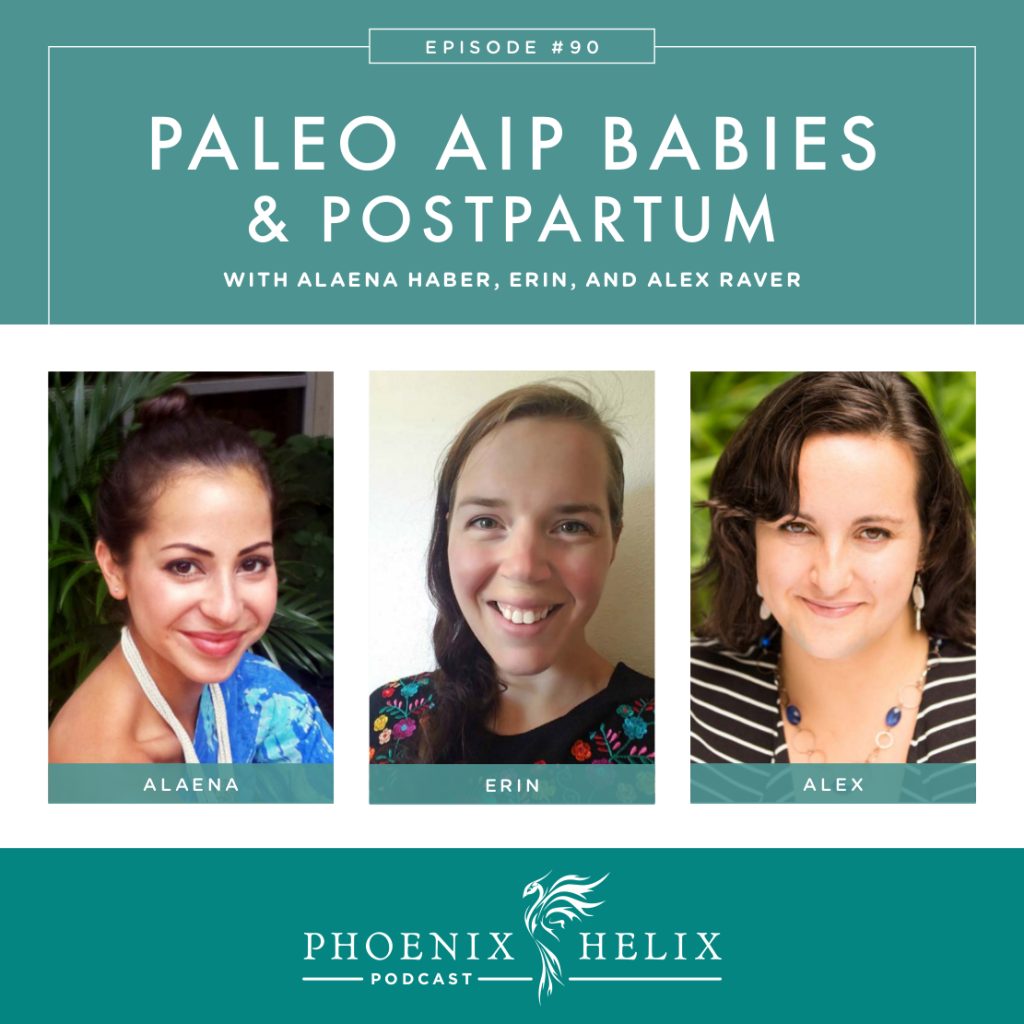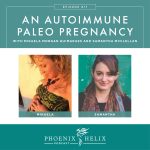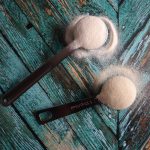Taking Care of Yourself While Taking Care of a Newborn
This is the third podcast in a series that began with Episode 13: Autoimmunity and Infertility, where we talk about why that can be a common problem for people with autoimmune disease and how to address it. Then, in Episode 17, we share advice for an Autoimmune Paleo Pregnancy, talking about what to expect for each trimester, and also plans for the delivery itself. Today, we’ll be talking about life after delivery. How do you continue to take care of yourself when you are also taking care of a new baby? What are the special health needs of both you and your baby during this time. I have 3 mothers with autoimmune disease joining me today, sharing their experiences.
Listen to the Show
- Subscribe to my podcast through your favorite podcast app: iTunes, Stitcher, Google, TuneIn, Spotify, Amazon, etc.
- You can also listen to the episode right here through the player below, and if you subscribe to my newsletter you’ll get notified of future episodes.
Podcast: Play in new window | Download
Show Notes
- Intro (0:00)
- Meet Our Guests (1:36)
- Alaena Haber uses the paleo autoimmune protocol (AIP) to help manage Hashimoto’s disease. She’s the blogger behind the website Grazed and Enthused and the author of 2 cookbooks: The Healing Kitchen and Enthused. She’s also a pediatric occupational therapist. Her daughter Grace is now 20 months old.
- Erin is the former blogger behind Real Food & Love and she uses the AIP to help manage psoriasis, psoriatic arthritis and Raynaud’s disease. She has 3 children, ages 9, 5, and her baby is 4 months old. Her first two children were born before she started the paleo autoimmune protocol.
- Alex Raver is the blogger behind Don’t Eat the Spatula. She follows the AIP to help manage PCOS. Her daughter Emily is 21 months old.
- Eileen’s Updates (2:55)
- I just returned from the vacation of a lifetime, swimming with humpback whales in the Dominican Republic’s Silver Bank Sanctuary. I’m happy to say that I stayed healthy throughout the trip. However, I did catch a cold upon arrival home. I spent most of the week in bed and was unable to get the podcast out on time, hence the extra week between podcast episodes. We’re back to our normal schedule going forward. For any of you who might be battling colds or flus, here’s an article of my best tips: Paleo AIP Cold and Flu Survival Guide.
- Thank You to Our Podcast Sponsor – Paleo on the Go (4:11)
- A frozen meal delivery service, they have a large menu of items for the paleo autoimmune protocol (AIP).
- Use the code PHOENIX for 10% off your first order.
- Autoimmune Health Before, During & After Pregnancy (5:23)
- Alaena was at the tail end of a Hashimoto’s flare when she got pregnant, and her autoimmune health improved during pregnancy. The flare was caused by a negative reaction to porcine thyroid medication, which was ironic because she had switched from synthetic medication thinking the porcine was more “natural”. When she went back on synthetic medication, the flare slowly started to improve. Her doctors watched her thyroid numbers closely during pregnancy, increasing her dosage at 6 weeks. She went into remission during the 2nd and 3rd trimesters. After a healthy delivery, she continued to test her thyroid numbers monthly postpartum. She experienced a minor flare about 2 months postpartum, but has been stable ever since.
- Alex was in the best health of her adult life prior to pregnancy. A naturopath had helped her balance her progesterone levels, which is a challenge for anyone with PCOS. The result was improved health and fertility. She maintained her health during pregnancy. She needed to have an induction, but the result was a healthy delivery. Her health declined postpartum, because she put all her focus on her baby and forgot about her own needs. That resulted in a relapse that she feels she is still digging herself out of 18 months later.
- Erin has 3 children. The birth of her second child caused increased psoriasis flares that led her to research and discover the paleo autoimmune protocol. Erin’s autoimmune health was excellent before her most recent pregnancy. She was in remission from all symptoms and had a healthy pregnancy as well. After delivery, her autoimmune symptoms stayed stable (no flares), but she has experienced brain fog and fatigue. She cannot tell if that’s due to hormone shifts of simply lack of sleep.
- Childbirth & Healing Foods (15:25)
- Alaena had a long natural childbirth: 3 days of labor at home and almost 24 hours in the hospital. She had a doula, whose support really helped her navigate the long labor. Post-delivery, she sent her husband to Whole Foods for coconut water and high-quality protein and vegetables, instead of hospital food. She did need antibiotics during delivery due to GBS, so when she returned home, she focused on gut health with a wide variety of fermented foods and a daily probiotic. She also focused on adding collagen to her daily diet and followed the AIP Food Pyramid’s focus on nutrient-density. Lastly, she did encapsulate her placenta, which provides nutrition that supports hormone balance and milk production postpartum. She experienced a second-degree tear during delivery which required stitches, but she needed no intervention beyond good nutrition to support healing.
- Alex had an induced labor. When monitoring her baby’s growth, there was concern there might be an IUGR. She was induced at 38-1/2 weeks and used hypnobirth techniques to navigate the labor. Alex also had a doula present for the birth and highly recommends it. Her baby was born healthy, but small (5 lbs. 9 oz.). Due to GBS, she also received antibiotics during labor, and Alex started both her and Emily on probiotics afterward. Post-delivery, her husband drove home and picked up some pre-made meals she had stored in the freezer. Her focus was 100% on her baby and she kept forgetting to eat, so she set alarms on her phone to remind her. She experienced no tearing during delivery.
- Erin had a home birth. Her labor was short and intense. To support healing, she focused on rest as much as possible. Her favorite foods those early weeks were bone broth, soups and freezer meals. She also had her placenta encapsulated.
- Resource: Natural Remedies for GBS.
- Planning Ahead – First Few Weeks Postpartum (28:51)
- Alaena’s husband was able to work from home the first 6 months of Grace’s life. New motherhood can feel very isolating, so having him home with her was invaluable. Her mother also stayed with them for the first 2 weeks, which Alaena highly recommends. Having someone to prepare a meal, or hand her a glass of water with a straw while breastfeeding, or watch the baby while she took a shower, made a huge difference.
- Erin’s husband took 3 weeks off from work, so she used that time to rest and recover as much as possible. She also focused on stocking the freezer with healthy pre-made meals prior to the birth. Her family doesn’t live nearby, so they didn’t have the option of extra support, which she would have loved if it was available. She also tried to give her older children extra attention before the new baby arrived. And her last bit of advice is simply prioritizing – focusing on what absolutely has to be done rather than trying to do everything.
- Alex’s husband only got 1 week off from work. Her sister was able to come the following week during the daytime hours to provide support while her husband was working, and her mother did the same for the third week, so she was able to patch together some extra support. Even so, it was difficult. Her advice is to accept help from anyone who offers. She and her husband declined help from friends, thinking they would want that time alone, and regretted it afterward. There were days when it was very overwhelming. In terms of other preparation, she also filled her freezer with healthy meals in advance of childbirth. And they set up their bedroom to provide Alex with anything she would need after delivery, so that she could simply rest in bed with the baby as much as possible.
- Resources:
- Postpartum Depression (37:56)
- Alex did experience depressive symptoms, brought on by difficulty breastfeeding and the feelings that brought up. She was able to pull herself out of it without medication, but it was difficult. Getting outside and walking helped. She also struggled with postpartum anxiety.
- Alaena had no depression symptoms for the first six months, but then they relocated to a different state and she lost much of her support network. That was the toughest time for her emotionally. To break the isolation, she joined a baby gym, a baby music class and also started introducing herself to other mothers at the local playgrounds. That’s a practice she maintains to this day. Social support is so important. Self-care techniques that also help Alaena include reiki, acupuncture, and magnesium supplementation.
- Erin didn’t experience any PPD. She gets the normal feelings of stress, self-doubt, and feeling overwhelmed, but those feelings pass rather than deepen.
- Resource: Symptoms of PPD & Anxiety.
- Managing Sleep (46:19)
- Erin’s baby is 4 months old and wakes 3 to 4 times each night to nurse. They both tend to drift off to sleep during nursing, but the sleep interruptions do take their toll. Erin’s grabs naps as she can. She also uses blackout curtains and a sound machine to help with entraining circadian rhythms. And if she needs to turn on a light in the middle of the night, she uses a salt lamp. For her older children’s nightlights, she uses orange halloween lightbulbs. Lastly, she doesn’t allow any technology in the bedroom, putting her phone in airplane mode to block all wifi signals.
- Alaena’s baby is 20 months old. She goes through long periods where she sleeps through the night, but then there will be weeks when she wakes up crying. Alaena’s tip for older babies is night weaning: to stop breastfeeding overnight when they no longer need the nourishment (somewhere between 6 and 12 months). Alaena is currently practicing Aware Parenting techniques, to break her daughter’s dependence on the breast or pacifier for comfort. Resource book: Tears and Tantrums.
- Breastfeeding (54:04)
- Alaena attended breastfeeding classes to prior to the birth, to learn about latch, positioning and how to identify tongue-tie or lip-tie. Her daughter did end up having a tongue-tie that interfered with her ability to latch well. This lead to painful breast engorgement for Alaena. While in the hospital, they used an SNS to assist with nursing. After they returned home, a lactation consultant identified the tongue-tie, and they had it corrected with a laser.
- When it comes to foods that support milk supply, getting enough calories is the first step. Have a bunch of convenience foods on hand that are easy to grab and eat one-handed. Alaena batch cooked meat patties and root vegetables, and made sure she never ran out.
- Alex wrote a brave and beautiful post about her breastfeeding challenges. They were a direct result of her PCOS and couldn’t be overcome. Too many mothers judge themselves for this. There is more than one way to nourish a child. The first sign of a problem was when Emily lost over 10% of her body weight within the first 3 days after delivery and became non-responsive, which was a terrifying moment. They supplemented with formula that night and continued to feed her via a syringe. She had both a tongue-tie and lip-tie also, which they corrected, but in spite of that and other supportive measures such as a nipple shield and SNS, Emily wasn’t gaining much weight. What they didn’t realize is that the milk ducts in Alex’s breasts didn’t develop fully during adolescence, so she wasn’t physically capable of producing a full milk supply. Resource: Human Milk Bank of North America.
- Final Words of Wisdom (109:10)
- Alaena – Support is so essential. It takes a village to raise a baby. Reach out and find the support you deserve and need. (Resource: Ep. 186 – How to Ask for Help.)
- Erin – Remember that there are variations of normal. Don’t compare your experience with others, or let those comparisons make you feel inadequate.
- Alex – Self-care. It’s so easy to neglect yourself when you’re taking care of a new baby, but that self-care is vital. Start small and schedule something just once/month for yourself, and slowly work your way to making self-care a regular part of your life.
- Further Resources for Paleo Babies
- Alaena’s Baby Series on her website, including the article Real Food Baby: How We Introduced Solids.
- Modern Mamas Podcast.
- Real Food Mamas Podcast.
- Outro (1:14:38)
- Erin is the former blogger behind Real Food & Love. Alex Raver is the blogger behind Don’t Eat the Spatula. Alaena Haber is the blogger behind website Grazed and Enthused and the author of 2 cookbooks: The Healing Kitchen and Enthused.
- Eileen (your podcast host) is the author of multiple books, written to help people thrive with autoimmune disease. Learn more on the Books Page.
- If you like this podcast, follow or subscribe through your favorite podcast app. You can also subscribe to Eileen’s biweekly newsletter.
- Check out the entire archive of podcast episodes.
You May Also Be Interested In
Spreading the Word
If you like the podcast, please leave a positive review in iTunes. It would mean the world to me, and also helps others find the podcast. Here are some quick instructions using your iPhone:
- If you are already subscribed to my podcast: (1) Click the purple podcast icon. (2) At the bottom of the screen, click Library. (3) At the top of the screen, click Shows. (4) Click the Phoenix Helix podcast image. (5) Scroll down the page, and you’ll see Ratings and Reviews. Scroll down a little bit more and click on Write a Review. This will bring up the review screen. Tap 5 stars (if you love the podcast), and then click in the title box, and it will bring up the keyboard. Enter a title and short review. (6) Click Send in the upper right corner. (7) Thank you! Positive reviews give the podcast a higher search ranking in iTunes, helping people find it and letting them know it’s a quality podcast and worth their time to listen.
- If you haven’t subscribed to my podcast: (1) Click the purple podcast icon. (2) In the lower right corner, click the magnifying class. (3) Type Phoenix Helix in the search box. (4) Click the podcast cover in the Show list. (5) If you’d like to subscribe, click the + sign at the top of the screen. (6) To write a review, scroll down the page, and you’ll see Ratings and Reviews. Scroll down a little bit more and click on Write a Review. This will bring up the review screen. Tap 5 stars (if you love the podcast), and then click in the title box, and it will bring up the keyboard. Enter a title and short review. (7) Click Send in the upper right corner. (8) Thank you! Positive reviews give the podcast a higher search ranking in iTunes, helping people find it and letting them know it’s a quality podcast and worth their time to listen.










What a great podcast. I wish I’d heard all this before I had my baby, but that was before my autoimmunity flared to begin with.
Thank you for highlighting PPD and for providing a way for women to assess their symptoms – Elaine is so right, it’s difficult to see yourself in the midst of such feelings.
I really appreciate Alaena and Alex sharing about their breastfeeding struggles. My daughter and I had very similar experiences with her losing 12% of her tiny birthweight within 44 hours of birth and needing formula supplementation, a nipple shield, finger feeding, SNS feeding, and ultimately tongue and lip tie revision. We got through it and were able to breastfeed till 17 months, but I had to wean her at that point for health reasons. Breastfeeding is a struggle for so many.
This podcast has really gotten me thinking about what I want to do differently next time around!
Thank you so much for sharing your experience. It helps when we’re struggling to know we’re not alone, and we learn so much from each other when we share our stories. Wishing you and your family abundant health!